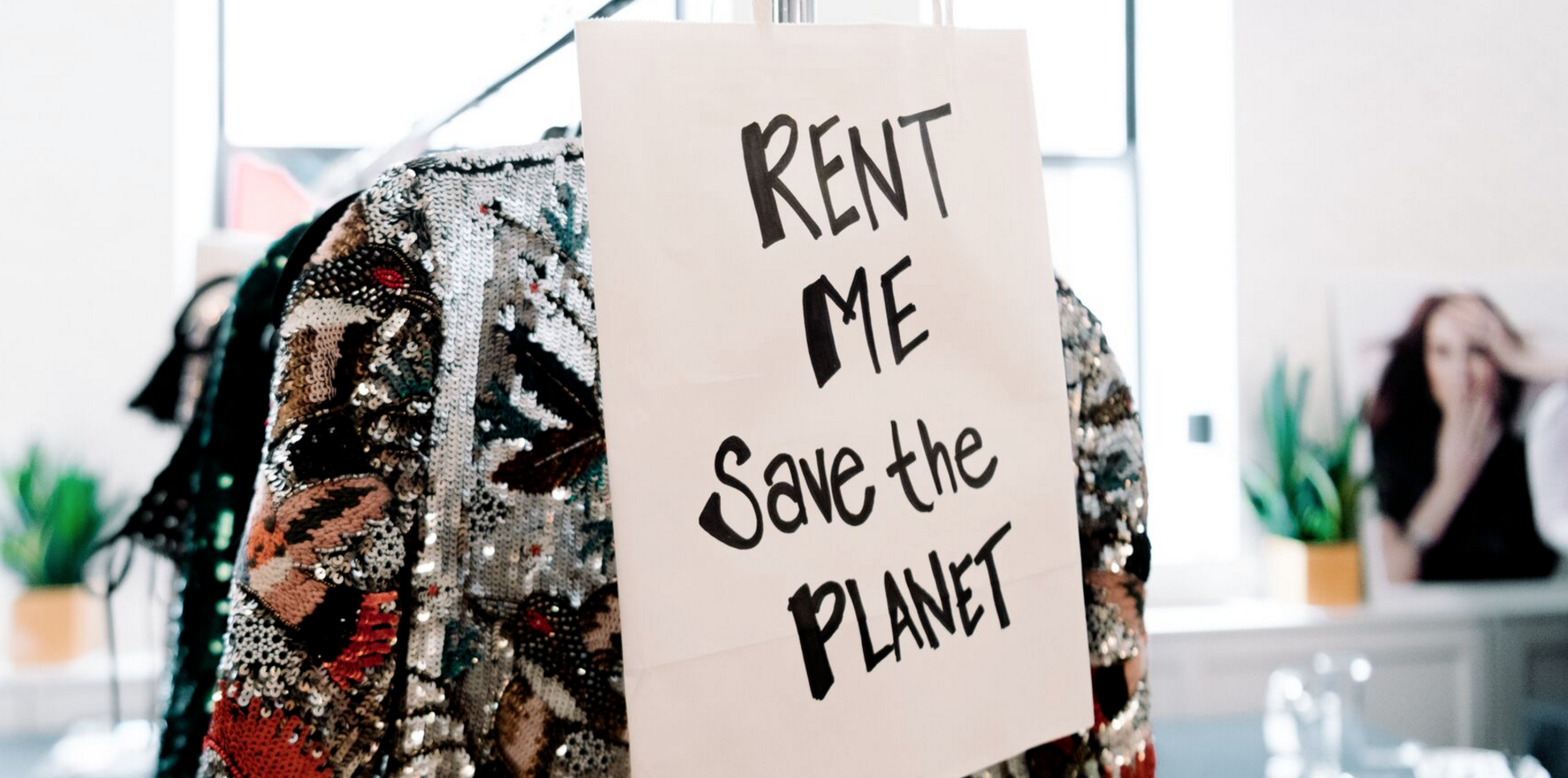As more retailers venture into the rental market, in line with consumer pressure to be more sustainable. We deep dive to find out if rental fashion is a sustainable salve to combat the overconsumption of clothes or if it is just another greenwashing buzzword.
According to figures from Future Marketing Insights, globally, 30% of clothes in wardrobes have not been worn for at least a year, while in the same period, Thus, many consumers and fashion companies have shifted their fashion shopping habits and business models to become more sustainable and offer more eco-friendly alternatives such as rental fashion.

(Source: Concious Chatter)
Rental fashion is a sustainable option that allows individuals to borrow clothes for a fixed period and return them. In the past few months, retailers like Marks and Spencer, Fenwick and Flannels have also ventured out into the rental ring by loaning their clothes to give their customers a chance to rent designer clothing as reported on the Chronicle Live.
Fashion United also states that the online fashion rental market is anticipated to grow 10% year-on-year until 2027 globally due to sustainable conscious consumers and upcoming fashion rental services rising up.
As the market becomes more competitive to become sustainable, questions have been raised around issues including supply chain transparency, unsustainable cleaning practices and increased delivery and return emissions. So, is rental fashion sustainable or is it not?
“I don’t think fashion rental is an alternative step to becoming more sustainable because we are still buying clothes, but rental is all about maximizing the clothes we have in our wardrobe and minimizing the waste to go straight to landfill,” says Jade Mcsorley, co-founder of Loanhood, an all-inclusive Gen Z-focused fashion rental company.
“Just like clothes swapping and buying second hand clothes, rental extends the life of clothes because you can buy a garment, have it in your wardrobe, rent it out to people and get it worn by others. In the end, you get it back and wear it for yourself,” she says.

(Co-founder of Loanhood, Jade Mcsorely and her Loanhood app. Source: Establish Models and Loanhood)
Liz Quach, the proud owner of Cupio, another fashion rental company focusing on cult fashion, also expresses that fashion rental is not the cure to end the overconsumption of clothes.
“I see two sides to the argument, and I must admit that the rental business still adds to the overconsumption of clothes but it’s not greenwashing because people rent out clothes from time to time.
“Not to mention, rental fashion is cost saving towards the environment and for your financial aspect too. Instead of buying an item of clothing, you’d wear once, it’s better for it to be rented out and worn by many others. This also adds life to clothes.
“The only problem with this model is that it lacks awareness in society. If more brands and influencers talked about it more, it would be normalized and used more like clothes swapping and shopping second hand,” Liz says.

(Cupio. Source: Cupio)
Jade also explains how the fashion rental business model has not been the most popular option of fashion sustainability until now.
“The concept of rental has only worked its way up now and has not been around much as compared to resale. If we’re going back in time to 10 years ago when resale was a foreign term, society found it to be unappealing at first before it gained attraction and is not within the likes of Depop and Vinted.
“I think fashion rental is at the same point where resale was 10 years ago, and it’s just going to take some time for consumers to bring rental into their consumer mindset. I believe we will get there, but it’s up to us to make it alluring and cool as resale,” says Jade.
Liz also adds how rental can bridge a customer’s desire for newness and feel special without adding to overconsumption as long as rental companies have ethical and sophisticated business models when it comes to rental and resale.
“Cupio’s business model leans more towards conscious consumption because of the items that I choose. Most of my pieces that are rented out have timeless designs that are suitable for most seasons and events” says Liz.
“I have also bought second hand clothes from others to be rented out too. Since Cupio is more towards cult fashion, fashion pieces that are out of trend are often sold off to other sellers when they’ve been worn multiple times. It’s life after another life and to go even greener, Cupio used packaging that’s made from recyclable materials too.
“We do our very best to maintain and make our sustainable as possible, by offering the chance to pick up your rented item in clothing in person rather than delivering, bringing down the cost of loaning an item and renting the best quality clothing from sustainable and ethical brands,” Liz explains.

(Source: Eco textile news)
Although there are brands that acknowledge how rental fashion is another positive step forward, there are others who still believe that renting is more of a business endeavour rather than a ‘get-more-greener-measure’. The elephant in the room is the logistics, carbon footprint, and chemical and water pollution involved.
When asked how rental can be better at causing less waste, senior fashion design lecturer at the University of Sunderland, Naomi Austin states rental’s a catch-22 situation and could have a better positive value if it was focused on occasional wear.
“If the rental option didn’t exist, then maybe more of the garments would be purchased and more pollution would be done- at least by renting, fewer garments are bought.”
“Personally, I think the garment business would work well if it’s for occasional wear like parties, Christmas and weddings. I don’t think I’d want to rent an everyday jumper as I’d like to wear it more than once. I can’t see renting everyday clothing taking off but I love to hire a statement piece which would cost a fortune to buy”.

(Fashion Design lecturer, Naomi Austin Source: University of Sunderland)
“Overall, renting is not entirely greenwashing but it’s a short-term fix for overconsumption. It only works for one-off statement pieces. However, I think it’s great that brands are pushing the idea of rental fashion, especially towards Gen Z,” Naomi adds.
Slowly but surely, the fashion rental market is making strides in the sustainable industry. Recently, British online fashion retailer ASOS has launched its rental collection in collaboration with another fashion rental company, Hirestreet playing a part in the 62% growth of the UK rental market.
With big brands such ASOS already having a footing in the fashion rental market, this can only inspire other bigger brands and individuals to embrace renting clothes, a new age of sustainable fashion for fashion lovers.
